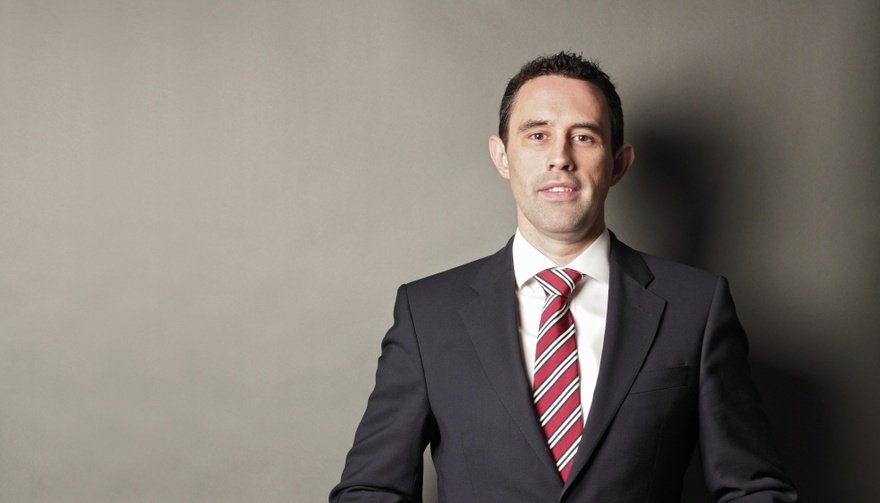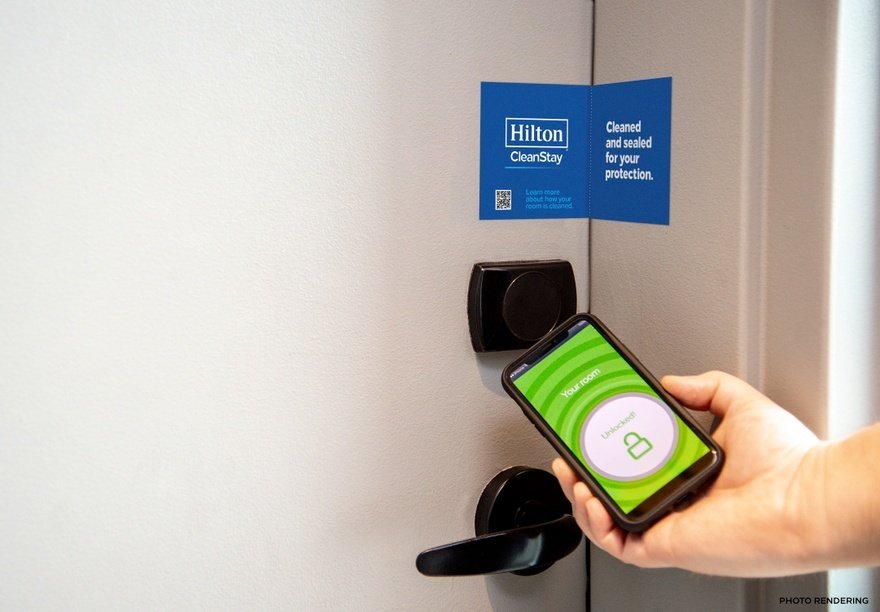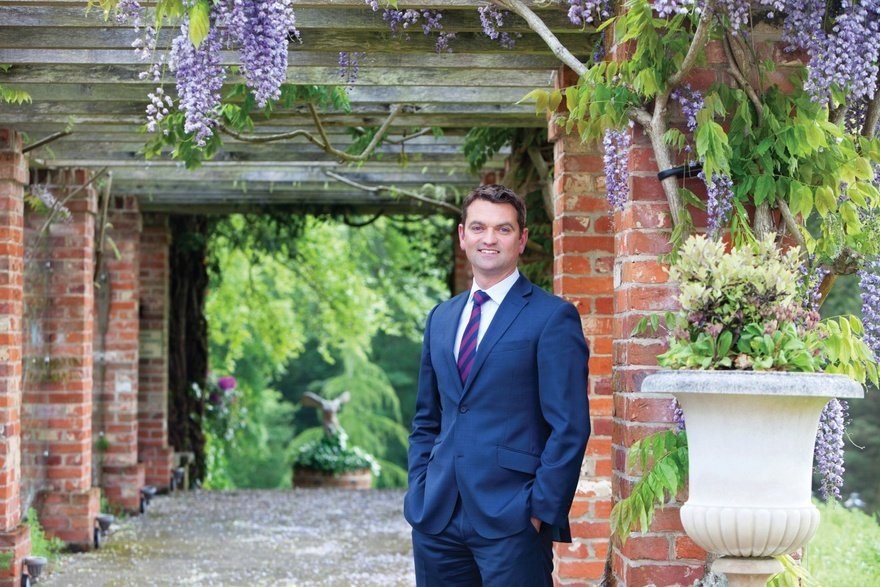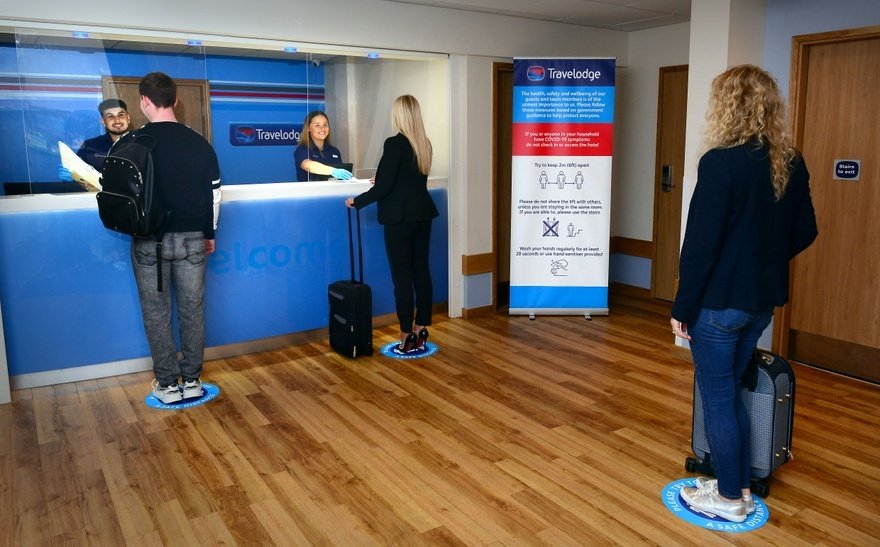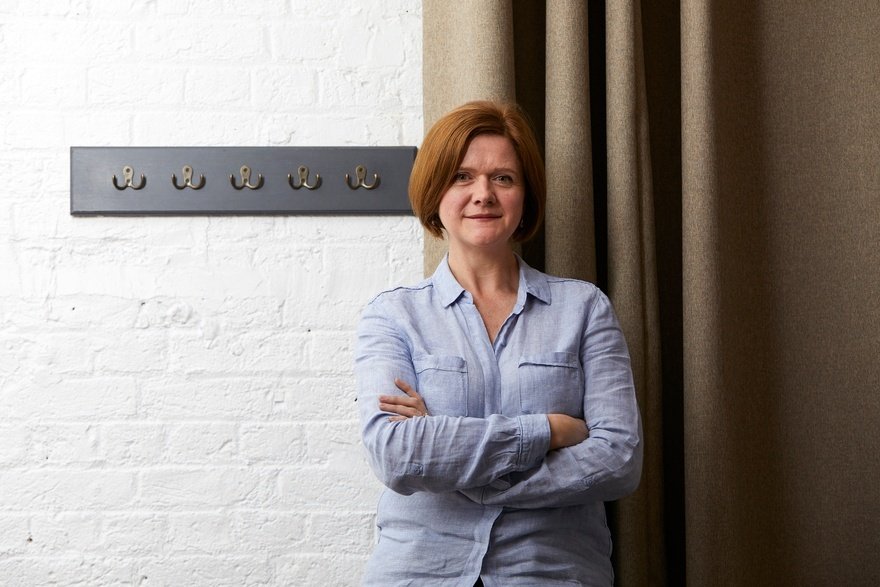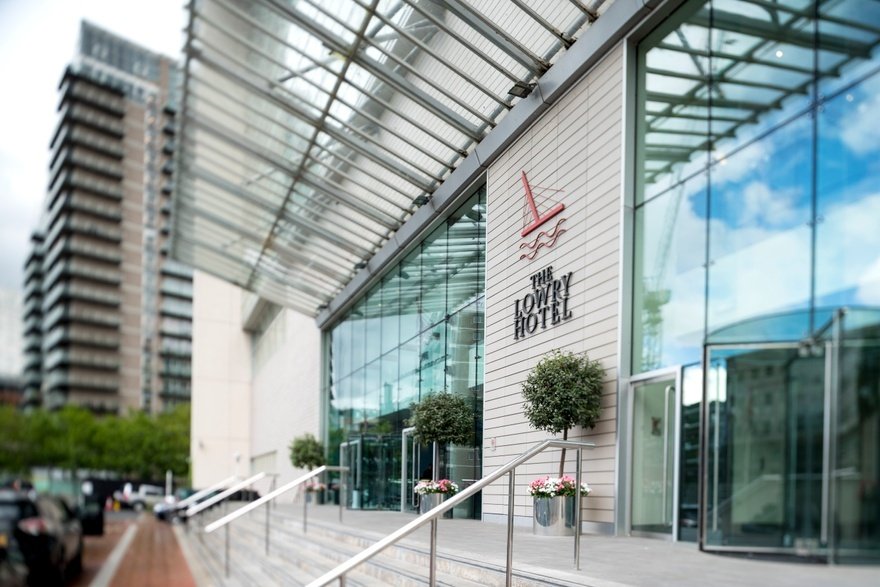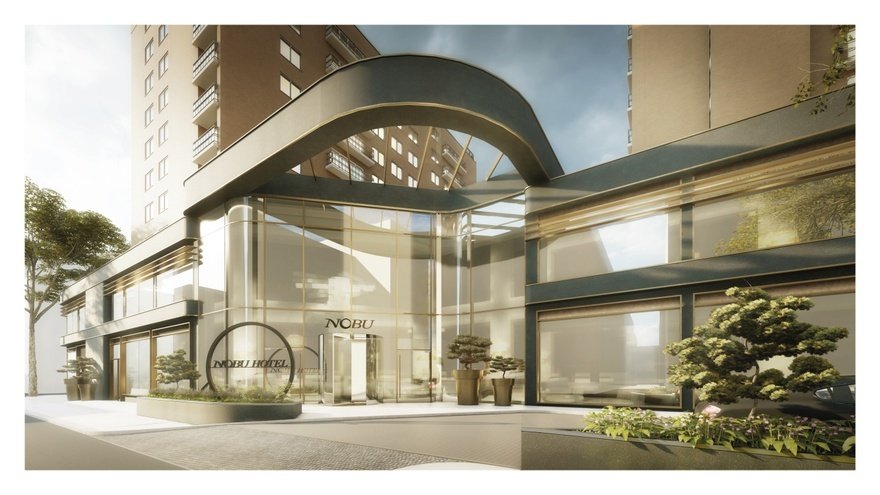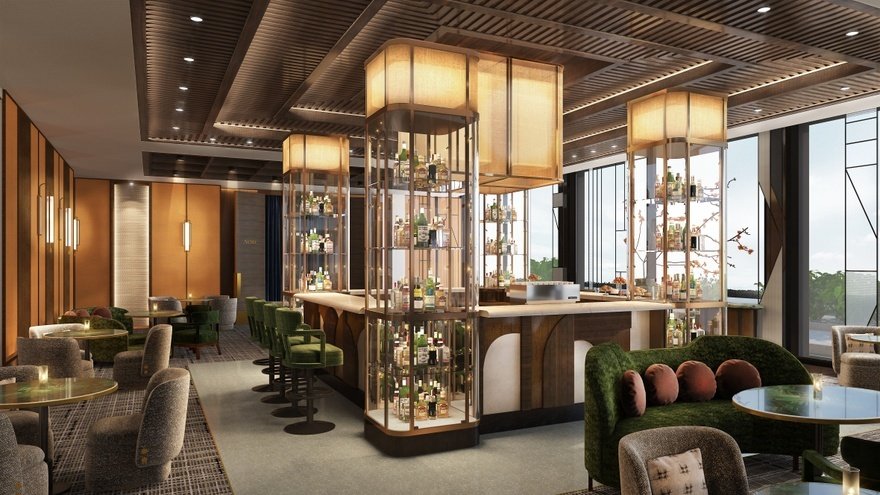The current parlous performance of London hotels cannot be underestimated. For a city that for years has consistently achieved the highest room rates in the country, with occupancy levels over 80%, it has been shocking to witness its dramatic decline as a result of the Covid-19 pandemic. Janet Harmer reports.
Ever since the hospitality sector was allowed to reopen on 4 July following lockdown, London has lagged behind all UK cities in terms of number of guests checking into hotels. During the first three weeks of August, the recorded occupancy among hotels that had opened across the whole of London was 28.6%, while Marylebone and Mayfair, where some of the capital's most prestigious hotels are situated, registered an occupancy of just 10.3%, a drop of 88.1% year-on-year.
While the final week of August saw some improvement, boosted by the bank holiday, London remained at the bottom of the UK occupancy table, with a figure of 37% across the whole city. Unsurprisingly, with rural locations and seaside venues benefitting from the staycation effect, the best performing cities were the tourist destinations of Plymouth (96%), Bournemouth (93%), Brighton (90%), York (89%), Inverness (88%) and Bath (83%).
With the peak holiday season over, schools reopen and more people back at work (but many still not in their offices), the precarious state of London hotels is only too clear. During the first week of September, hotel occupancies across the whole capital dropped back to 29%, a week-on-week decline of 22%.
London's exceptional occupancy levels have occasionally been dented by unforeseen events in the past, but they have always swiftly bounced back. Hotel industry consultant Melvin Gold says: "They have been knocked off course by the likes of the global recession, 9/11, and the Gulf War, but they have always returned to the same levels, despite an ongoing increase in the number of rooms. This time, however, it is unclear – with many businesses still closed and with new supply on the horizon – whether hotels will return to occupancies of 80% to 90% anytime soon."
The reality is that with office workers only slowly returning to city centres, negligible domestic and international corporate business, few overseas tourists, limited events and the continued closure of West End theatres, occupancies are likely to remain squeezed and revenues reduced.
With the furlough scheme coming to an end on 31 October, the reduction in VAT from 20% to 5% being curtailed on 12 January 2021, and uncertainty about an extension to the business rate holiday, difficult decisions regarding staff retention are going to have to be made very soon. Widespread redundancies have already been made across the capital, but if more government support is not forthcoming, additional job losses on a mass scale are inevitable.
Following the announcement on 9 September restricting social gatherings to six people, UKHospitality has accelerated its campaign to urge the government to look again at on-going support for the sector. While chief executive Kate Nicholls is not optimistic that the furlough scheme will be reversed – suggesting that a potential 200,000 jobs across the whole hospitality sector in London could be at risk – she is "heartened" by support being received on targeted help for hospitality from some members of the Treasury Select Committee and Conservative MPs, such as Nickie Aiken, who represents the Cities of London and Westminster.
Looming redundancies
The five-AA-star, 73-bedroom Beaumont hotel, which remains closed, has avoided redundancies so far, but general manager Jannes Soerensen admits that "a real cliff is looming" with the end of the furlough scheme.
Located in the heart of Mayfair, the Beaumont achieved an average of 90% occupancy during 2019, with international guests accounting for 85% of its business. The lack of international bookings has been a key factor in the hotel remaining shut while "we assess the market", says Soerensen. "We have a core team of 17 still working, but the rest of the 165 staff remain furloughed."
The Ned hotel took a different approach to reopening, welcoming the return of guests at the first available opportunity on 4 July. "We wanted to give the message that we were back as soon as we could," says managing director Gareth Banner. The 250-bedroom hotel, located in the heart of the City of London, opposite the Bank of England, is yet to open all 10 of its restaurants – the lack of office staff in the locality has made that impossible – but those outlets that have opened are doing steady business.
We wanted to give the message that we were back as soon as we could
Pre-Covid, the Ned's extensive F&B operation served 30,000 covers per week; today it is doing around 10,000, made up of a mix of regular customers and members of Ned's Club. Due to the necessity of reducing the number of covers to comply with social distancing rules, the only restaurants to open so far to the public are the hotel's largest outlets – Millie's Lounge (reduced to 84 covers) for all-day dining, Cecconi's (70 covers) for lunch and dinner and Kaia (70 covers) for dinner only. Club spaces are also open.
Banner says there has been an eagerness among customers to indulge themselves after a long period at home and they are spending well on food and drink, with sales of Champagne rocketing. He says that the decision to stay in close contact with members during lockdown is paying dividends. "Some members froze their subscriptions, while those who continued to pay were given credits for future spending on F&B at the Ned, [home interiors business] Soho Home or cases of wine," he says.
Entertainment – always a key part of the Ned offer – has recently restarted on a modest basis, with soloist, duos and trios performing, whereas once there would have been bands and ensembles. "Live music is helping revenue as it creates atmosphere, improves the guest experience and encourages people to stay longer," says Banner. Further business is being driven from an extension of the government's Eat Out To Help Out scheme on Mondays, Tuesdays and Wednesdays during September and a 50% discount for NHS guests on their entire visit, with a total of 1,000 medical staff accommodated so far.
Unsurprisingly, the Ned's bedroom business still has some way to go. Occupancy mid-week is only 16%, while weekend bookings are better at up to 60%, with domestic leisure guests enjoying the opportunity to visit unusually quiet tourist attractions in the capital. "Until North Americans, who previously accounted for one-third of our guests, start to travel again, we will struggle to get close to our previous occupancy of 80%," adds Banner.
With international markets, together with corporate and events, largely out of the picture for the foreseeable future, hotels are focusing on the UK leisure market for guests who are predominately booking on Friday and Saturday nights. Room bookings mid-week are slow.
Rest and reassure
The top priority for operators now is to regain guest confidence, ensuring the provision of a safe and secure environment while also offering a warm welcome and enjoyable stay. All the major hotel groups have created programmes aimed at reassuring guests that their hotels are complying to Covid-safe standards. They include the Travelodge Protect+ scheme across the company's 575 UK hotels, the Hilton CleanStay standards and Marriott International's new programme aimed at elevating cleanliness standards.
Independent hotels are being equally vigilant. "We have always been good at cleaning and managing risk – it is what we do – but now we are being more upfront about the extra and extensive safety measure currently in place," says Joanne Taylor-Stagg, general manager of the 164-bedroom Athenaeum Hotel & Residences on London's Piccadilly. "While generally it is not in our nature to be so forthright, our guests are very appreciative and feel reassured about how we are operating."
We have always been good at cleaning and managing risk, but now we are being more upfront about the extra and extensive safety measure now in place
Anyone entering the Athenaeum is expected to wash and sanitise their hands, while thermal imaging is used to check temperatures and masks are being worn in all public areas apart from the restaurant. Ozone machines sanitise bedrooms between guests, fogging machines kill viruses in the public area every half an hour and high-touchpoint areas are regularly wiped down.
Staff wear full personal protective equipment, and receptionists, who work behind screens, wear masks. Guests are asked if they want their rooms serviced during their stay and around half choose to do so.
Playing the rate game
Many hotels are doing what they can to entice business in through rate reductions, as highlighted in the £85.25 average room rate achieved across all London hotels during the first three weeks of August, a 44.7% decrease compared to the same period in 2019. This equates to an 82% reduction year-on-year in the revpar rate to £24.40, indicating the huge financial hit hotels in the capital are suffering.
Hotels in the luxury sector, however, are hanging on to their rates, with the predominately five-star market across Marylebone and Mayfair experiencing a drop in average room rate of only 5% to £332.59 from 1-23 August, compared to the first three weeks in August 2019 (revenue per available room during the same period was down 88.7% to £34.25).
Andrew Stembridge, managing director of Iconic Luxury Hotels, is overseeing the launch of the 172-bedroom Mayfair Townhouse in November, with an opening rate of £332. "We will start as we mean to go on," he explains. "There will be no future for us if we get involved in a rate game."
There will be no future for us if we get involved in a rate game
The budget end of the market, however, is looking to boost business by slashing rates, with Travelodge announcing the release of 1.5 million rooms for £29 or less across all its UK hotels, including 77 properties in London.
Meanwhile, there are multiple deals being offered by mid-market hotels. Until this week, Apex Hotels' three London hotels have been channelling all of their bookings to the 207-bedroom Apex Temple Court hotel, close to Fleet Street, with the Apex City of London opening on 25 September and the Apex London Wall remaining closed. With business boosted from the other two hotels, occupancy for Temple Court during August reached 70%. However, average room rate for the hotels is now less than £100, half of the rate it achieved this time last year.
"Guests are being enticed by our £99 rate, including breakfast," explains Karl Mitchell, general manager of the Apex Temple Court. He is keeping costs as tight as possible by opening the hotel's restaurant for breakfast only and not offering room service. "It is a scary time," he admits.
Delayed events
It had been hoped that a government announcement would be made around 1 October, addressing the return of events attended by more than the current limit of 30 for weddings, funerals and meetings, if social distancing can be maintained. Pilot schemes have already taken place to test necessary safety measures and protocols to ensure the feasibility of holding events safely. However, Nicholls believes any decision will now be delayed until after the government has assessed how the regulations announced on 9 September are affecting the Covid infection rate.
"My advice to operators is that the quickest way we can get out of this is to obey the law and don't stretch the rules by facilitating large gatherings," she says.
The quickest way we can get out of this is to obey the law and don't stretch the rules by facilitating large gatherings
Any delay to the relaxation of the rules around events is, of course, a blow to all hotels in the run up to the busy autumn and Christmas seasons, but most particularly to those that rely heavily on hosting major dinners, conferences and award ceremonies.
The 496-bedroom JW Marriott Grosvenor House London is home to the Great Room, which hosts 250 events per year, each averaging around 1,200 guests per event. In normal times, some 45% of the hotel's usual £80m plus annual turnover comes from F&B, of which 75% is accounted for by banqueting.
Stuart Bowery, general manager of Grosvenor House, says: "Most of our regular annual clients have now booked new dates for next year. Once events do return, we are lucky in that we are blessed with plenty of space and are confident that, whatever the operating protocols are for the service and execution of events, we will be able to execute them safely."
Meanwhile, the 411-bedroom Royal Lancaster London has successfully clawed back some business for its extensive meetings and events space through the introduction of a virtual offering. Located in the hotel's Westbourne Suite, which can usually accommodate up 1,200 covers, the XR mixed reality production suite and space enables companies to display their products in a studio with LED backdrop and floor, audio, broadcast cameras and TV-ready lighting to a live audience of up to 30. Multiple rooms, each accommodating up to 30, can also be booked to view a live feed from the studio.
Sally Beck, general manager of the Royal Lancaster London, says that the SmartStudio, which is being operated in partnership with Smart AV, has brought in £200,000 of revenue within one week and has had interest from a variety of different domestic and international companies, including those in the pharmaceutical and automobile sectors.
While the capital's hoteliers are doing all they can to attract back domestic guests, the loss of international business – both corporate and leisure – to the London hotel and wider hospitality sector cannot be underestimated. In 2019, 19.9 million of the 40.9 million overseas travellers to the UK visited London, spending £15b of the total £28.4b spent while they were in the country. VisitBritain is now forecasting that the total number of international visitors to the UK during 2020 will be around 11 million, with spend amounting to just £6b.
With VisitBritain estimating that tourism will not recover to pre-Covid 19 levels for at least five years, substantial funding is going to be needed to encourage international travellers to return to the UK.
As a result, SOS London Collective has been set up to call on the government to support large-scale domestic and international marketing campaigns, take greater steps to encourage workers back into offices, encourage public transport confidence, relax the congestion charge and raise the business rate relief.
In a letter to the prime minister, the SOS London Collection, led by UKHospitality and Merlin Entertainment, said that without the above measures, "London's tourism sector may sink to a place from which it cannot return, representing one of the biggest missed opportunities on Britain's road to recovery and prosperity".
The capital's hoteliers are desperately hoping that it will not come to this.
Beyond London
During the first week of September, the best-performing major cities beyond the capital and major tourist destinations were Bristol (61%), Cardiff (52%) and Edinburgh (50%). Locations struggling during the peak holiday month with occupancies under 50% included Glasgow (38%), Manchester (38%) and Birmingham (34%). All of these last three cities have been hampered by subsequent local lockdowns.
The five-AA-star, 165-bedroom Lowry hotel in Salford, Manchester, reopened its doors on 1 August. General manager Adrian Ellis says weekdays during August were quiet, but weekends were busy, with occupancies reaching 85% and 92% on the Saturday and Sunday of the bank holiday weekend respectively. "Overall across August we achieved 42% occupancy."
The hotel has introduced a number of packages, primarily aimed at the leisure market. They include Room to Dine (accommodation and room service); Room to Stay Fit, (gym equipment in bedrooms) and Room to Indulge (bed and breakfast, Champagne, chocolates, late check-out and discounted bar bill). For those looking to escape working from home, there is the Room to Work package, providing a workspace in a bedroom from 8am to 5pm with refreshments for £70. Accor is offering a similar Hotel Office rate for a nine-hour period across its 250 UK hotels.
The most popular package at the Lowry is the Nights on Us (seven nights for the price of five), and other incentives include the extension of the Eat Out To Help Out Scheme on Tuesdays and Wednesdays in November and takeaway @Home packages for afternoon tea, Sunday lunch and dinner.
New openings on the horizon
More than 10,000 applications have been received by the Nobu Hotel London Portman Square for 71 jobs as the 249-bedroom property gears up for opening on 9 November – a stark realisation of the plethora of staff now on the job market. Many of those appointed were employees who have been made redundant from London hotels.
Grant Campbell, the hotel's general manager, who joined the property in early February, said that sifting through the applications had been "challenging and emotional", with many "very good" people not being taken on. The hotel will open its bedrooms, restaurant and bar with around 150 of the full complement of 400 staff. Some 86 employees have been transferred from Nobu Berkeley Street restaurant, which closed in March.
The opening of the property had originally been scheduled for July, but was delayed as construction slowed during lockdown, with the number of contractors dropping from 250 to 70 to allow for social distancing.
With occupancies in London at a historic low, it is going to be a challenging time to reopen. However, the Portman Square hotel's owners L+R and operators Nobu Hospitality decided to launch in November as part of a long-term strategy to gain a presence in the marketplace. "We will establish the brand in the locality as well as on a global platform so that we will be ready when the corporate market returns," says Campbell.
Other hotels due to open this year include the 172-bedroom Mayfair Townhouse (owned by L+R and part of the Iconic Luxury Hotels portfolio), the 180-bedroom Middle Eight and 91-bedroom Nomad London in Covent Garden, and the 53-bedroom Guardsman, near St James's Park. Properties delayed until 2021 include the 350-bedroom Londoner on Leicester Square and the Pan Pacific, with 237 bedrooms and 160 apartments in the City of London.
Continue reading
You need to be a premium member to view this. Subscribe from just 99p per week.
Already subscribed? Log In


